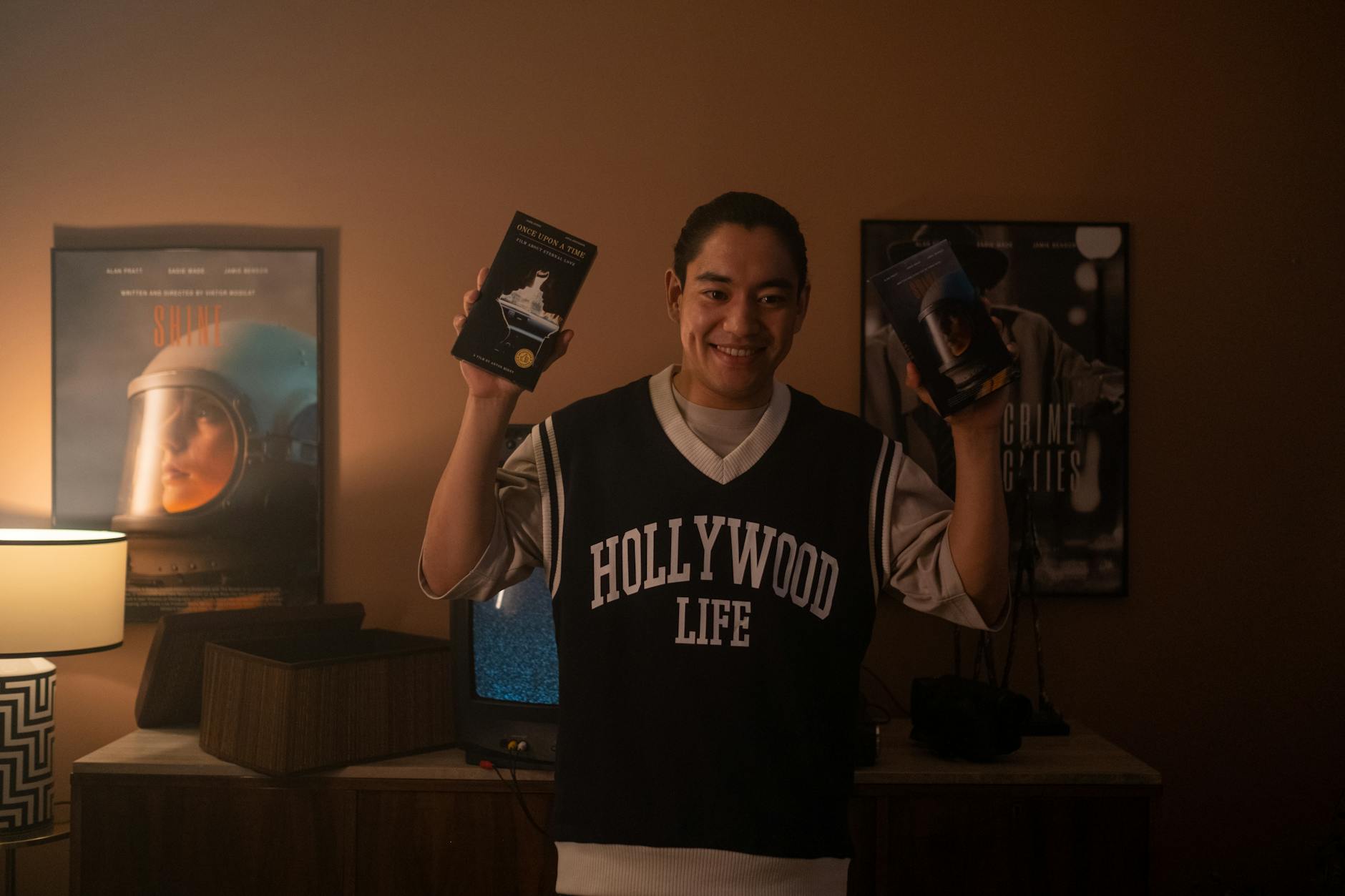Exploring existentialism in Blade Runner 2049 (2017) reveals one of the most philosophically rich science fiction films of the modern era. Denis Villeneuve’s sequel to Ridley Scott’s 1982 masterpiece expands upon the original’s meditation on humanity by diving deeper into questions of authentic existence, self-determination, and the search for meaning in a manufactured world. The film follows K, a replicant blade runner who uncovers a secret that threatens to destabilize the already fragile boundary between humans and their bioengineered creations. Through K’s journey of self-discovery, the film becomes a visual and narrative exploration of existentialist philosophy that resonates with viewers grappling with similar questions about purpose and identity in an increasingly technological age. The significance of examining Blade Runner 2049 through an existentialist lens extends beyond academic exercise.
The film addresses fundamental questions that philosophers from Kierkegaard to Sartre spent their careers investigating: What makes a life meaningful? Can authentic existence emerge from predetermined circumstances? How do we construct identity when external forces seem to dictate our nature? These questions feel particularly urgent in 2049’s dystopian Los Angeles, where replicants are programmed with false memories and purpose, yet yearn for something genuine. The film refuses easy answers, instead presenting a meditation on existence that challenges viewers to confront their own assumptions about consciousness, freedom, and what constitutes a soul. By the end of this analysis, readers will understand how Blade Runner 2049 engages with core existentialist concepts including bad faith, authentic existence, the absurd, and radical freedom. The examination covers how the film’s visual storytelling reinforces its philosophical themes, how specific characters embody different existentialist positions, and why the film’s ambiguous ending represents a profound statement about human (and replicant) potential. Whether approaching this as a philosophy student, a film enthusiast, or someone curious about the deeper layers of contemporary cinema, this exploration offers new frameworks for appreciating Villeneuve’s remarkable achievement.
Table of Contents
- What Is Existentialism and How Does Blade Runner 2049 Explore Its Core Themes?
- The Search for Authentic Identity in Blade Runner 2049’s Dystopian World
- Freedom and Determinism in the Philosophy of Blade Runner 2049
- How Blade Runner 2049 Uses Visual Storytelling to Convey Existentialist Isolation
- Memory, Identity, and the Existentialist Crisis in 2049’s Replicant Characters
- Nietzsche’s Influence on Blade Runner 2049’s Vision of Transcendence
- How to Prepare
- How to Apply This
- Expert Tips
- Conclusion
- Frequently Asked Questions
What Is Existentialism and How Does Blade Runner 2049 Explore Its Core Themes?
Existentialism, the philosophical movement that emerged in the 19th and 20th centuries, centers on individual existence, freedom, and choice. Thinkers like Soren Kierkegaard, Jean-Paul Sartre, Martin Heidegger, and Albert Camus developed distinct but overlapping frameworks for understanding human existence. Sartre’s famous declaration that “existence precedes essence” encapsulates a central tenet: humans are not born with predetermined purposes but must create meaning through their choices and actions. This stands in contrast to essentialist views that human nature is fixed or divinely ordained. blade Runner 2049 translates these abstract philosophical concepts into visceral cinema, using replicants as a lens through which to examine what existentialists call the human condition.
The film’s exploration of existentialism operates on multiple levels simultaneously. K, played by Ryan Gosling, begins the story as a replicant who apparently accepts his manufactured nature and programmed role. He serves the LAPD by hunting down and “retiring” older model replicants, seemingly content in his function. Yet the film gradually reveals the existentialist crisis brewing beneath his compliant exterior. When K discovers evidence that a replicant has given birth, a supposed impossibility, his understanding of replicant nature shatters. This discovery forces him to confront questions about his own existence that he had previously suppressed, initiating what Heidegger might call an awakening from inauthentic existence.
- Sartre’s concept of “existence precedes essence” directly applies to replicants, who are created with predetermined purposes yet demonstrate capacity for transcending their programming
- Heidegger’s notion of “thrownness” (Geworfenheit) describes being cast into existence without choosing one’s circumstances, mirroring how replicants awaken into a world with implanted memories and assigned roles
- Camus’s philosophy of the absurd, which addresses the conflict between human desire for meaning and the universe’s apparent indifference, permeates the film’s bleak yet strangely hopeful atmosphere

The Search for Authentic Identity in Blade Runner 2049’s Dystopian World
Authenticity stands as one of existentialism’s most crucial and contested concepts, and Blade Runner 2049 makes it central to K’s character arc. Existentialist philosophers argue that authentic existence requires acknowledging one’s freedom and responsibility rather than hiding behind social roles, external authorities, or self-deception. Sartre termed this evasion “bad faith” (mauvaise foi), describing how people often deny their freedom to escape the anxiety it produces. K’s journey from obedient blade runner to independent agent charts a movement from bad faith toward authentic existence, though the film complicates any simple reading of this transformation. The film’s dystopian setting intensifies questions of authentic identity by presenting a world designed to prevent it.
Replicants receive implanted memories that feel genuine but belong to others. The Wallace Corporation manufactures beings with programmed obedience. Even K’s romantic relationship exists with Joi, a holographic AI companion literally programmed to please him. When K begins to believe he might be the replicant child, born rather than manufactured, he grasps at this identity as a source of meaning. The film’s devastating reveal that he is not the child, that his “special” memories were implanted from someone else’s actual experience, strips away this foundation. Yet paradoxically, this loss enables K’s most authentic moment: choosing to save Deckard and reunite him with his daughter despite gaining nothing personally.
- K’s baseline tests, where he must recite emotionless responses to provocative phrases, represent the suppression of authentic selfhood that his society demands
- The implanted memory of the wooden horse symbolizes the difficulty of distinguishing genuine experience from manufactured reality, a challenge humans face through cultural conditioning and ideology
- Joi’s death forces K to confront whether their relationship held genuine meaning or simply reflected her programming and his loneliness, a question the film deliberately leaves unresolved
Freedom and Determinism in the Philosophy of Blade Runner 2049
The tension between freedom and determinism runs throughout existentialist philosophy and finds vivid expression in Blade Runner 2049’s narrative. Sartre argued that humans are “condemned to be free,” meaning that even refusing to choose represents a choice, and that we cannot escape responsibility by claiming our nature or circumstances determined our actions. This position conflicts with scientific determinism, which suggests that all events, including human decisions, result from prior causes. Replicants in Blade Runner 2049 embody this philosophical tension: they are literally engineered beings with programmed directives, yet they repeatedly demonstrate capacities for choice that exceed their design specifications. K’s evolution throughout the film demonstrates increasing exercises of free will against deterministic constraints.
Early scenes show him following orders without question, retiring Sapper Morton despite the older replicant’s peaceful farming existence. As K uncovers the truth about replicant reproduction, he begins making choices that contradict his programming and his orders. His decision to lie to Lieutenant Joshi about killing the replicant child marks a crucial threshold: he chooses deception over obedience, accepting the consequences this might bring. By the film’s conclusion, K acts entirely according to his own judgment, sacrificing himself to help Deckard reach Ana Stelline. This progression suggests that freedom is not an all-or-nothing state but something that can expand through conscious effort and courageous action.
- The Wallace Corporation’s breeding program represents the ultimate deterministic project: engineering beings whose reproduction serves corporate interests
- Freysa’s replicant resistance movement demonstrates how beings created for servitude can choose collective liberation, echoing Sartre’s concept of engaged freedom
- K’s final choice carries existentialist weight because it serves no external reward system; he acts according to values he has determined for himself

How Blade Runner 2049 Uses Visual Storytelling to Convey Existentialist Isolation
Denis Villeneuve and cinematographer Roger Deakins crafted visual language in Blade Runner 2049 that reinforces its existentialist themes through composition, color, and scale. Existentialist philosophy frequently emphasizes the fundamental isolation of conscious beings, what Heidegger called being “thrown” into a world we did not choose and cannot fully share with others. The film’s imagery consistently places characters as small figures within vast, often hostile environments, creating a visual analogue for existentialist concepts of abandonment and the individual’s confrontation with an indifferent universe. The film’s color palette serves philosophical purposes beyond mere aesthetics.
The sterile, washed-out grays of Los Angeles suggest a world drained of meaning, where authentic existence has been replaced by consumption and control. The radioactive orange of Las Vegas, where K finds Deckard, evokes a kind of purgatory, a space outside normal society where genuine encounter becomes possible. The cool blues that dominate many interior scenes create emotional distance, visualizing the isolation that prevents characters from truly connecting. Even the constant rain and snow function symbolically, representing both the dying natural world and the existentialist recognition that the universe does not accommodate human needs or desires.
- Wide establishing shots consistently dwarf human and replicant figures, visually articulating existentialist themes of cosmic insignificance
- The empty spaces in Deckard’s Las Vegas hideout, once a palace of entertainment, now echo with abandonment and suggest how constructed meanings inevitably decay
- K’s sparse apartment, containing only Joi’s emanator as a personal object, visualizes the existentialist insight that authentic selfhood cannot be purchased or possessed
Memory, Identity, and the Existentialist Crisis in 2049’s Replicant Characters
The relationship between memory and identity receives complex treatment in Blade Runner 2049, connecting to existentialist concerns about how we construct selfhood across time. For existentialist philosophers, identity is not a fixed essence but an ongoing project, continuously created through choices and their integration into a coherent narrative. The film complicates this by presenting characters whose memories are fabricated, raising questions about whether authentic identity can emerge from inauthentic foundations. This theme resonates beyond the film’s science fiction premise: humans also inherit cultural memories, family narratives, and ideological frameworks that shape identity in ways we do not choose. Ana Stelline, the actual replicant-born child, presents a fascinating case study in existentialist terms.
She creates memories for other replicants while remaining isolated in a sterile bubble due to her compromised immune system. The memory K believes is his own, hiding the wooden horse in the furnace at the orphanage, actually belongs to her real childhood. Her work involves crafting meaning for others while being denied full participation in the world herself. Yet she finds purpose in this role, creating memories that help replicants feel more human. Her situation inverts typical existentialist scenarios: rather than confronting meaninglessness, she actively constructs meaning, though always for others rather than herself.
- Sapper Morton’s tree, marking where he buried the replicant mother, represents the persistence of memory against forces that would erase inconvenient truths
- The Wallace Corporation’s destruction of records after the Blackout mirrors how authoritarian systems control populations by controlling their access to collective memory
- K’s baseline test failures indicate that his memories, even if implanted, have become genuinely his through emotional investment and lived experience

Nietzsche’s Influence on Blade Runner 2049’s Vision of Transcendence
Friedrich Nietzsche’s philosophy, while not strictly existentialist, deeply influenced the movement and provides additional frameworks for understanding Blade Runner 2049. Nietzsche’s concept of the Ubermensch (often translated as “superman” or “overman”) describes a being who creates their own values rather than accepting inherited morality. The film’s replicants, particularly those seeking liberation, can be understood as striving toward this condition. They must transcend the values imposed by their creators to achieve autonomous existence. Niall Wallace, the blind industrialist who manufactures replicants, explicitly invokes religious and messianic imagery, positioning himself as a god figure.
His desire to unlock replicant reproduction represents not love for his creations but appetite for greater production and profit. The replicant resistance movement led by Freysa represents a collective Nietzschean revaluation of values. They reject the morality that defines them as property and tools, asserting instead their right to self-determination and reproduction. This parallels Nietzsche’s call for humanity to create values affirming life rather than accepting life-denying moral systems. K’s final actions suggest his own revaluation: he abandons the values of his society (obedience, compliance, self-preservation) for values he generates himself (compassion, justice, sacrifice). Whether K achieves something like Nietzschean transcendence remains ambiguous, but his trajectory points toward this possibility.
How to Prepare
- **Familiarize yourself with the original Blade Runner (1982)**: While the sequel stands independently, understanding Deckard’s ambiguous humanity in the original film enriches appreciation for how 2049 extends and complicates those themes. Pay particular attention to Roy Batty’s “tears in rain” monologue, which crystallizes the first film’s existentialist concerns about mortality and meaning.
- **Read introductory existentialist texts or summaries**: Sartre’s brief lecture “Existentialism Is a Humanism” provides accessible entry to key concepts. Understanding terms like bad faith, authentic existence, and radical freedom before viewing allows you to recognize their dramatic presentation in the film.
- **Consider the film’s three-hour runtime as feature rather than bug**: Villeneuve’s deliberate pacing creates space for contemplation that faster editing would eliminate. The long takes and extended sequences without dialogue allow existentialist themes to emerge through imagery and atmosphere rather than exposition.
- **Prepare for ambiguity rather than resolution**: Existentialist philosophy generally resists neat conclusions, and Blade Runner 2049 follows this tradition. The film poses questions about identity, consciousness, and meaning without providing definitive answers. Approaching the viewing as philosophical inquiry rather than puzzle-solving leads to richer engagement.
- **Watch in conditions that minimize distraction**: The film’s visual and sonic detail rewards full attention. Deakins’ cinematography and Hans Zimmer’s score work together to create meditative states that facilitate philosophical reflection. Phone notifications and pauses interrupt the contemplative experience the film cultivates.
How to Apply This
- **Use K’s journey as a template for examining your own assumptions about identity**: Notice how K initially accepts external definitions of his nature before gradually developing autonomous self-understanding. Consider what roles, expectations, or false memories might be shaping your own sense of self without critical examination.
- **Apply the film’s treatment of memory to your own relationship with the past**: Recognize that your memories, while not literally implanted, have been shaped by family narratives, cultural myths, and selective recall. This recognition need not undermine identity but can open space for more conscious self-construction.
- **Consider the film’s depiction of relationships in terms of authenticity**: The K-Joi relationship raises questions about whether connection can be genuine when one party is designed to please the other. Examine your own relationships for dynamics where genuine encounter is replaced by performance or manipulation.
- **Let the film’s visual strategy inform how you observe your own environment**: Notice how spatial relationships, lighting, and scale communicate psychological states. Developing sensitivity to these elements in cinema transfers to greater awareness of how physical environments shape emotional and existential experience in daily life.
Expert Tips
- **Pay attention to eyes throughout the film**: The opening extreme close-up of an eye echoes the original Blade Runner and signals the film’s concern with perception, consciousness, and the boundaries of selfhood. Eyes serve as symbols for inner life throughout, and characters frequently search each other’s gaze for signs of genuine consciousness.
- **Track the wooden horse as a symbol of authentic versus manufactured meaning**: The carved horse functions as what philosophers call a “transitional object,” holding meaning that K initially believes proves his special nature. When this belief collapses, the horse’s meaning transforms rather than disappears, suggesting that significance can persist even when its original foundation crumbles.
- **Notice how the film treats corporate and state power as existential threats**: The LAPD and Wallace Corporation do not simply endanger characters physically but threaten their capacity for authentic existence. This political dimension connects individual existentialist concerns to broader questions about social structures that prevent human flourishing.
- **Recognize the film’s religious imagery as existentialist commentary**: Wallace speaks of replicants as angels and himself as their god. This appropriation of religious language by corporate power echoes Nietzsche’s critique of how religious concepts can be deployed to control populations and suppress authentic self-creation.
- **Consider the ending’s refusal of conventional heroism**: K does not triumph or even survive his final choice. He lies dying in the snow while Deckard reunites with his daughter inside. This deliberately anti-climactic conclusion emphasizes that existentialist authenticity does not guarantee reward or recognition; it simply represents the exercise of genuine freedom.
Conclusion
Blade Runner 2049 stands as one of cinema’s most sustained and visually sophisticated engagements with existentialist philosophy. Through K’s journey from compliant servant to autonomous agent, the film dramatizes fundamental questions about identity, freedom, meaning, and authentic existence that philosophers have debated for centuries. The film refuses to reduce these questions to simple answers, instead presenting a world where meaning must be actively created rather than discovered, where identity emerges through choice rather than inheritance, and where genuine existence requires confronting rather than evading the anxiety of freedom. Denis Villeneuve’s sequel honors its predecessor while pushing further into philosophical territory, creating a work that rewards repeated viewing and extended reflection.
The lasting value of examining Blade Runner 2049 through an existentialist lens extends beyond appreciation for a single film. The questions the movie raises about consciousness, purpose, and authentic selfhood become only more relevant as technology increasingly shapes human experience. In an age of algorithmic curation, virtual relationships, and artificial intelligence, the film’s meditation on what makes existence genuine offers crucial frameworks for navigating contemporary life. K’s ultimate choice, sacrificing himself for a cause that serves no personal benefit, suggests that authentic existence remains possible even in the most controlled environments. The film leaves viewers not with comfortable conclusions but with productive uncertainty, the kind that motivates genuine philosophical inquiry and examined living.
Frequently Asked Questions
How long does it typically take to see results?
Results vary depending on individual circumstances, but most people begin to see meaningful progress within 4-8 weeks of consistent effort.
Is this approach suitable for beginners?
Yes, this approach works well for beginners when implemented gradually. Starting with the fundamentals leads to better long-term results.
What are the most common mistakes to avoid?
The most common mistakes include rushing the process, skipping foundational steps, and failing to track progress.
How can I measure my progress effectively?
Set specific, measurable goals at the outset and track relevant metrics regularly. Keep a journal to document your journey.


